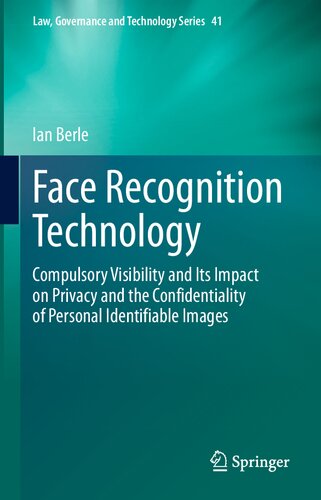

Most ebook files are in PDF format, so you can easily read them using various software such as Foxit Reader or directly on the Google Chrome browser.
Some ebook files are released by publishers in other formats such as .awz, .mobi, .epub, .fb2, etc. You may need to install specific software to read these formats on mobile/PC, such as Calibre.
Please read the tutorial at this link: https://ebookbell.com/faq
We offer FREE conversion to the popular formats you request; however, this may take some time. Therefore, right after payment, please email us, and we will try to provide the service as quickly as possible.
For some exceptional file formats or broken links (if any), please refrain from opening any disputes. Instead, email us first, and we will try to assist within a maximum of 6 hours.
EbookBell Team

4.8
34 reviewsThis book examines how face recognition technology is affecting privacy and confidentiality in an era of enhanced surveillance. Further, it offers a new approach to the complex issues of privacy and confidentiality, by drawing on Joseph K in Kafka’s disturbing novel The Trial, and on Isaiah Berlin’s notion of liberty and freedom. Taking into consideration rights and wrongs, protection from harm associated with compulsory visibility, and the need for effective data protection law, the author promotes ethical practices by reinterpreting privacy as a property right. To protect this right, the author advocates the licensing of personal identifiable images where appropriate.
The book reviews American, UK and European case law concerning privacy and confidentiality, the effect each case has had on the developing jurisprudence, and the ethical issues involved. As such, it offers a valuable resource for students of ethico-legal fields, professionals specialising in image rights law, policy-makers, and liberty advocates and activists.